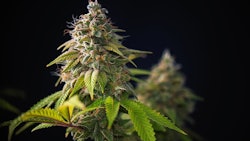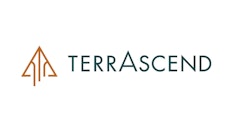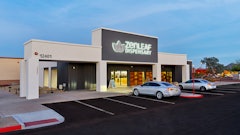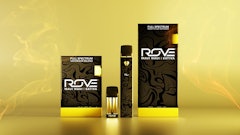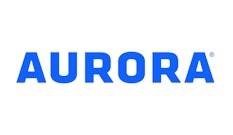Chicago – PRESS RELEASE – Roughly 40 percent of U.S. adults age 21 and over indicated a willingness to explore CBD under the right conditions, according to a new study on U.S. CBD consumers. The study by High Yield Insights is the first to quantify booming domestic consumer interest in products containing CBD, a therapeutic chemical compound found in cannabis. CBD has been proven to alleviate symptoms associated with seizure disorders and is known to address issues associated with anxiety, pain, depression, sleeplessness and other health conditions.
The report breaks ground in understanding the behaviors, product and format preferences and demographics of both current and potential CBD users. The study included U.S. consumers who indicated interest in CBD, finding that the majority (64 percent) are 35 years or older, female (56 percent), with college experience (79 percent). For these potential users, key motivations for trying CBD include easier access to products (42 percent), availability of unbiased research (44 percent) and a physician’s recommendation (34 percent). Among products potential users might consider, accessible forms such as chocolates and baked goods rank high along with types resembling familiar OTC products such as pills and capsules.
“We are seeing many consumers looking to incorporate CBD into their wellness regimen,” said Mike Luce, co-founder of High Yield Insights and a 20-year veteran in consumer insights and market research. “Consumers previously unfamiliar with CBD are rapidly showing interest. Now that the federal government is finally taking steps to clear up the hazy legal picture, people see CBD as an entry point to the therapeutic benefits of cannabis.”
Among current CBD users, approximately half are under the age of 34 and most (54 percent) have used CBD for less than one year. Some (30 percent) current users report using products containing CBD only while others prefer medicating with products containing a mixture of CBD and the psychoactive compound THC.
While the legality of products containing THC varies state to state, the U.S. government seems to have bestowed legal status on some products containing CBD. Only CBD derived from “industrial hemp” containing a mere trace (0.3 percent) of THC has been approved for consumer use. In addition, the U.S. Food and Drug Administration (FDA) recently signaled broader acceptance of cannabis by approving the first-ever prescription medication (Epidiolex by UK-based GW Pharmaceuticals) containing an active ingredient derived from so-called marijuana.
“CBD does seem to be benefiting from greater acceptance of cannabis,” notes Luce. “Seven in 10 current CBD users have also used cannabis containing THC in some form in the past three months. This indicates that for some users, CBD-only products are serving a complementary function.”
“Unfortunately, we are still seeing some confusion among consumers. When the federal government enacted the recent Farm Bill, most interpreted the language as legalizing CBD. However, the FDA needs to take further action to clarify its stance. Some states are demanding stores pull CBD products off the shelf claiming that it is an unregulated food additive,” Luce said. “With potential users identifying easier access as a chief motivator, such actions go against what the public is seeking.”
The report, CBD Consumer Experience: Part One, provides proprietary intelligence based on exclusive feedback from current, former, and potential CBD users. By incorporating a broader swath of the public, the findings best represent the mindset of today’s consumer. Subsequent reports will focus on the CBD user’s lifestyle, changes in consumption, and tradeoffs with other product categories such as alcohol and pharmaceuticals.
The CBD Consumer Experience: Part One draws from a national representative online survey of U.S. adults aged 21 and older. The survey was fielded Jan. 14-23, 2019 among 2,000 consumers, 1,500 of whom reported currently using CBD products in the past three months, and 500 who reported not using CBD products.
For more information, visit www.highyieldinsights.com.








